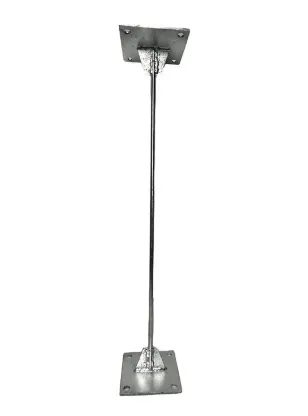loading...
- No. 9, Xingyuan South Street, Dongwaihuan Road, Zaoqiang County, Hengshui, Hebei, China
- admin@zjcomposites.com
- +86 15097380338
- Welcome to visit our website!
Innovations in FRP Pressure Vessels Enhancing Performance and Safety Standards in Industry
Understanding FRP Pressure Vessels Innovation in Composite Materials
Fiber-Reinforced Polymer (FRP) pressure vessels have emerged as an innovative solution in industries requiring high-performance, lightweight, and corrosion-resistant materials. These advanced composite materials are increasingly replacing traditional options like steel and aluminum due to their superior properties. This article explores the design, advantages, applications, and challenges associated with FRP pressure vessels.
Design and Composition
At its core, an FRP pressure vessel consists of a polymer matrix reinforced with fibrous materials, such as glass or carbon. This composite structure is designed to withstand high internal pressures while minimizing weight, making it particularly useful in applications where the vessel is subject to harsh environmental conditions. The design of FRP vessels is guided by industry standards and codes, such as those set forth by ASTM, ASME, and other regulatory bodies. These standards ensure that the vessels are safe, reliable, and capable of containing fluids under pressure without risk of failure.
Advantages of FRP Pressure Vessels
1. Corrosion Resistance One of the primary advantages of FRP pressure vessels is their exceptional resistance to corrosion. Unlike metal vessels, which can succumb to rust and degradation over time, FRP vessels remain stable in aggressive chemical environments, significantly reducing maintenance costs and extending service life.
2. Lightweight FRP materials are substantially lighter than traditional metals. This characteristic not only simplifies transportation and installation but also reduces the structural load on support systems and foundations.
3. Thermal Insulation The thermal properties of FRP materials offer inherent insulation, making them ideal for high-temperature applications where heat retention or resistance is crucial. This feature can lead to significant energy savings.
4. Design Flexibility The molding processes used for FRP allow for intricate designs and custom shapes, enabling manufacturers to create pressure vessels optimized for specific applications. This flexibility can lead to improved efficiency and performance in various settings.
frp pressure vessels

Applications
FRP pressure vessels have found applications across multiple sectors, including
- Chemical Processing Used for storing corrosive chemicals due to their excellent chemical resistance. - Water Treatment Employed in various water purification and treatment processes, ensuring longevity and reliability. - Oil and Gas Utilized in the storage of hydrocarbons and other fluids, where weight savings and corrosion resistance are critical. - Marine Industry Commonly used in shipbuilding and offshore platforms, where exposure to saltwater can be highly corrosive to traditional materials.
Challenges and Considerations
Despite their advantages, FRP pressure vessels are not without challenges. One concern is the standardization and certification process, as regulations can vary significantly across regions and applications. Moreover, manufacturing techniques for FRP can be complex, requiring skilled labor and specialized equipment.
Additionally, while FRP is resistant to many chemicals, it is not universally applicable. For instance, extreme temperatures or certain solvents may compromise the integrity of the polymer matrix. Thus, a thorough understanding of the materials' limitations is essential when selecting FRP for specific applications.
Conclusion
In conclusion, FRP pressure vessels represent a significant advancement in material technology, offering an array of benefits for various industries. Their lightweight, corrosion-resistant, and thermally insulating properties make them an attractive alternative to conventional pressure vessel materials. However, careful consideration must be given to their specific properties and application requirements to ensure safety and effectiveness. As technology continues to evolve and research into composite materials progresses, the use of FRP pressure vessels is likely to expand further, paving the way for innovative solutions across diverse sectors.
-
Transform Your Spaces with FRP Grating SolutionsNewsNov.04,2024
-
The Versatility and Strength of FRP RodsNewsNov.04,2024
-
The Excellence of Fiberglass Water TanksNewsNov.04,2024
-
The Benefits of FRP Grating for Your ProjectsNewsNov.04,2024
-
Elevate Your Efficiency with FRP Pressure VesselsNewsNov.04,2024
-
Welcome to the World of FRP Pressure VesselsNewsOct.12,2024
-
Unveiling the Future of Filtration: Why FRP Filter Vessels are a Game ChangerNewsOct.12,2024
